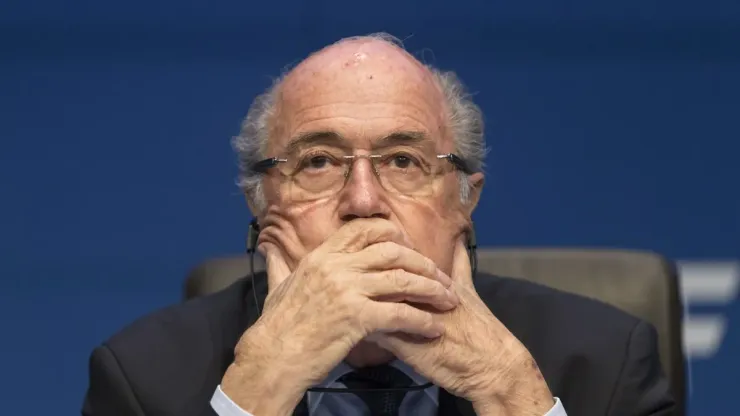FIFA’s ethics committee has recommended a 90-day suspension for president Sepp Blatter, according to Wednesday reports. The recommendation will now go to FIFA’s adjudicatory arm where, if accepted, Blatter could be banned until early January. Hans-Joachim Eckhart, the German judge who will render the final decision, is expected to make a final ruling on Thursday, when a decision upholding the committee’s suggestion could increase calls for Blatter’s immediate resignation.
The decision comes one week after Swiss authorities questioned Blatter as a suspect in an ongoing criminal investigation and days after three prominent FIFA sponsors called for dramatic reforms in the governing body. Coca-Cola, one of FIFA’s most important sponsors, along with Budweiser called for Blatter to step down.
Michel Platini, UEFA president and potential candidate in FIFA’s special February presidential election, is also reportedly close to being suspected by the ethics committee, a body that recently banned FIFA general secretary Jerome Valcke indefinitely for his connection to a plan to profit from tickets at the 2014 World Cup.
Pending Eckhart’s decision, Blatter is reportedly provisionally suspended. With both he and Valcke gone, FIFA vice president Issa Hayatou of Cameroon would be FIFA’s highest ranking active official.
Pressure on Blatter has intensified since May, when a hotel being used by FIFA executives was raided by Swiss authorities prior to the body’s annual general meetings in Lake Zurich. The raid was a part of United States-led effort that’s produced 14 indictments against officials and executives linked to FIFA television contract, marketing and World Cup hosting decisions. The resulting charges have alleged various levels of fraud, with multiple officials already extradited to the United States.
Though Blatter was elected to a fifth term as FIFA president shortly after the raid, he quickly announced his intention to resign once a successor was chosen in a special election. That special election, however, scheduled for February, may be too far away to allow Blatter to see out his term, with a suspension likely to increase calls for an immediate resignation.
MORE BLATTER: Sponsor revolt | Reign soon to end | Urged to stand down
In the days before Valcke’s suspension, Swiss authorities gained access to the former secretary general’s emails, after which a series of new corruption allegations emerged. Blatter was subsequently accused of entering into a television contract with former CONCACAF president Jack Warner that sold television rights for well below market value, a potential crime. Also, a mysterious $2 million payment from FIFA, said to have been authorized by Blatter, to Platini drew focus to the two prominent officials. Though Platini claimed the sum was for services rendered while FIFA was unable to pay him, others with knowledge of FIFA’s finances disputed his claims.
Now Blatter faces a suspension that will take him within seven weeks of the next presidential election, one Platini looks increasingly less likely to take part in. Though the former Juventus icon insists he remains in the race, deepening links to Blatter’s regime make his candidacy increasingly untenable.
MORE PLATINI: England’s support | Indicting financials | Links to Blatter
Another presidential candidate, South Korea’s Chung Mong-joon, is also facing suspension in connection with corruption in the 2018 and 2022 World Cup bidding processes. Should neither he nor Platini run, Prince Ali bin Hussein of Jordan would be the leading candidate to assume Blatter’s post.
Whether it is Blatter or Hayatou’s post come February is increasingly uncertain. With last week’s news of prominent sponsors turning up the heat on FIFA, any compromise to keep Blatter in office could be interpreted as a lack of urgency on reform. And increasingly, it’s becoming more politically viable to side against Blatter than to maintain solace in his status quo.
200+ Channels With Sports & News
- Starting price: $33/mo. for fubo Latino Package
- Watch Premier League, Women’s World Cup, Euro 2024 & Gold Cup
The New Home of MLS
- Price: $14.99/mo. for MLS Season Pass
- Watch every MLS game including playoffs & Leagues Cup
Many Sports & ESPN Originals
- Price: $10.99/mo. (or get ESPN+, Hulu & Disney+ for $14.99/mo.)
- Features Bundesliga, LaLiga, Championship, & FA Cup
2,000+ soccer games per year
- Price: $5.99/mo
- Features Champions League, Serie A, Europa League & Brasileirāo
175 Premier League Games & PL TV
- Starting price: $5.99/mo. for Peacock Premium
- Watch 175 exclusive EPL games per season






